Pebble Beach Concours d'Elegance, 2016 A Cars
Pebble Beach Concours d'Elegance, 2016 A Cars Photos and Stories.
Concours d'Elegance, Car Show, 2016-08-21, Pebble Beach Lodge, Pebble Beach, California, US
Best of Show
Concept Cars
Ford GT40
A Cars
B Cars
C-D Cars
F Cars
H-L Cars
M-O Cars
P-R Cars
S-V Cars
Prologue

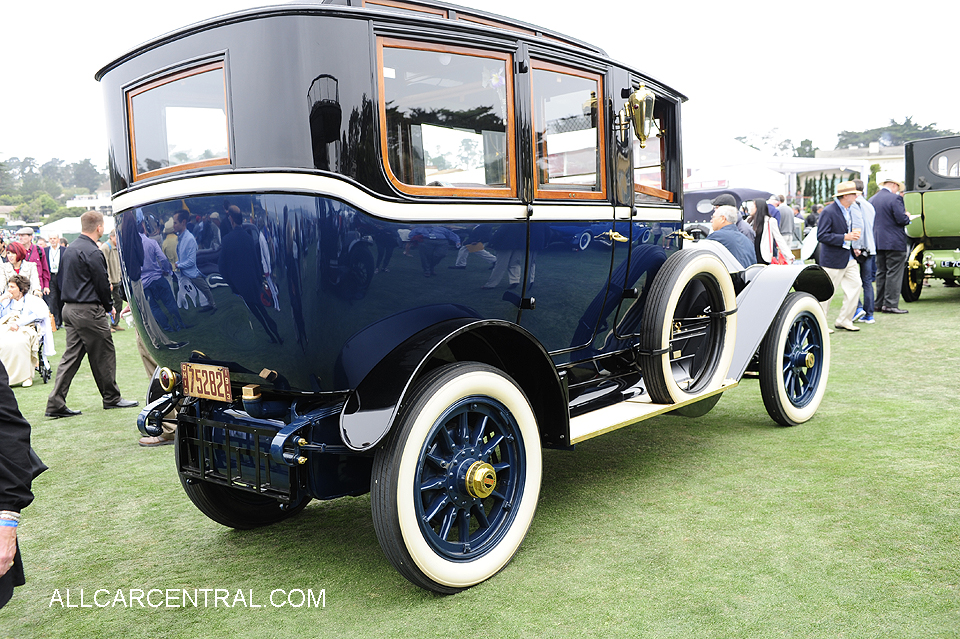
ALCO Model Six
Berline Limousine 1913
This majestic limousine is one of very few 6-cylinder Model Sixes
built by the American Locomotive Company’s ALCO car company.
The Alco was both technically very well built and very good looking,
and each car took nineteen months to complete. The combination
of fine engineering and beautiful coachwork made the Alco the
most expensive car built in America—and this Model Six berline
limousine was the most expensive Alco model. One of the identifying
features of the Alco is the white stripe that surrounds the body. The
passenger compartment has five feet of headroom, interior lighting,
and roll-up side windows, quite an advanced feature in 1913. In the
mid-1960s this rare car was sympathetically restored for its thenowner William Snyder. It joined the Crawford Collection in 1976.
Source: Pebble Beach Concours media release.

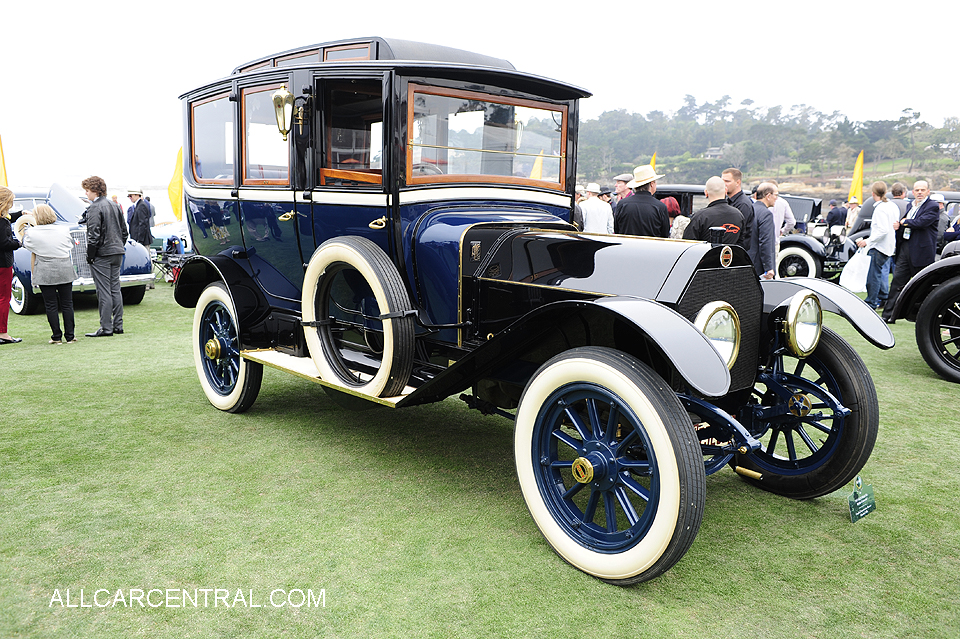
ALCO Model Six Berline Limousine 1913

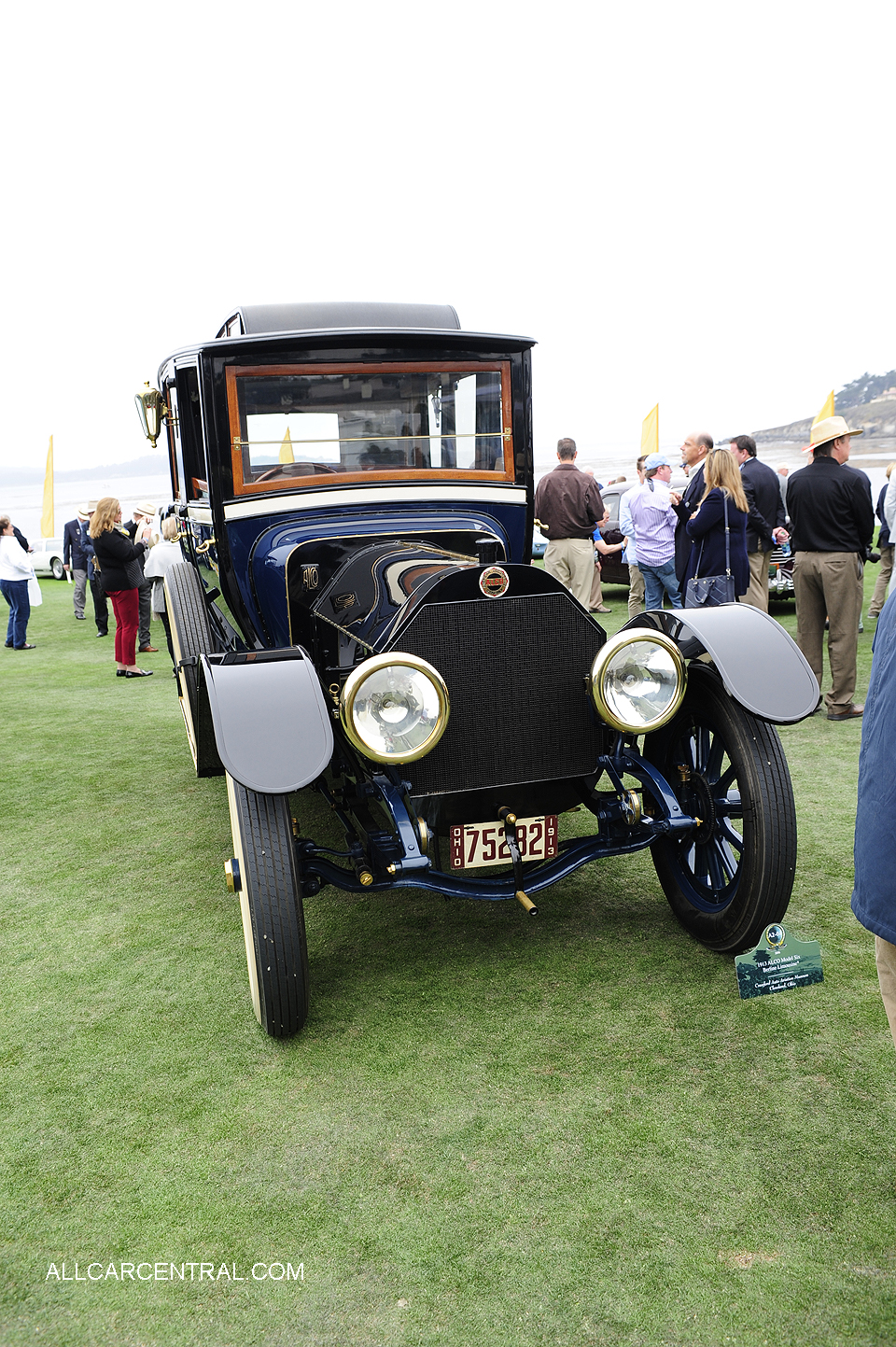
ALCO Model Six Berline Limousine 1913

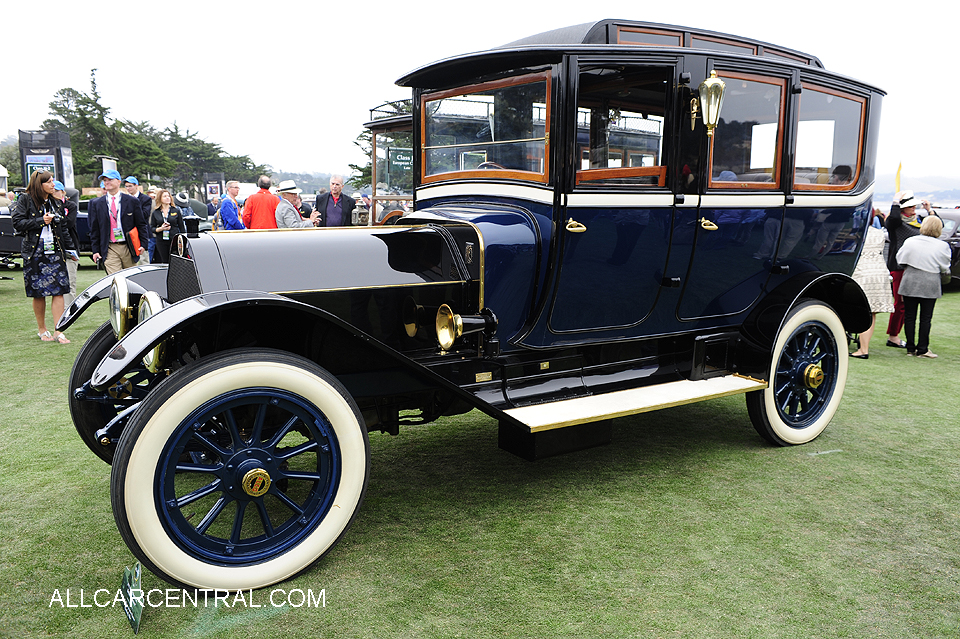
ALCO Model Six Berline Limousine 1913

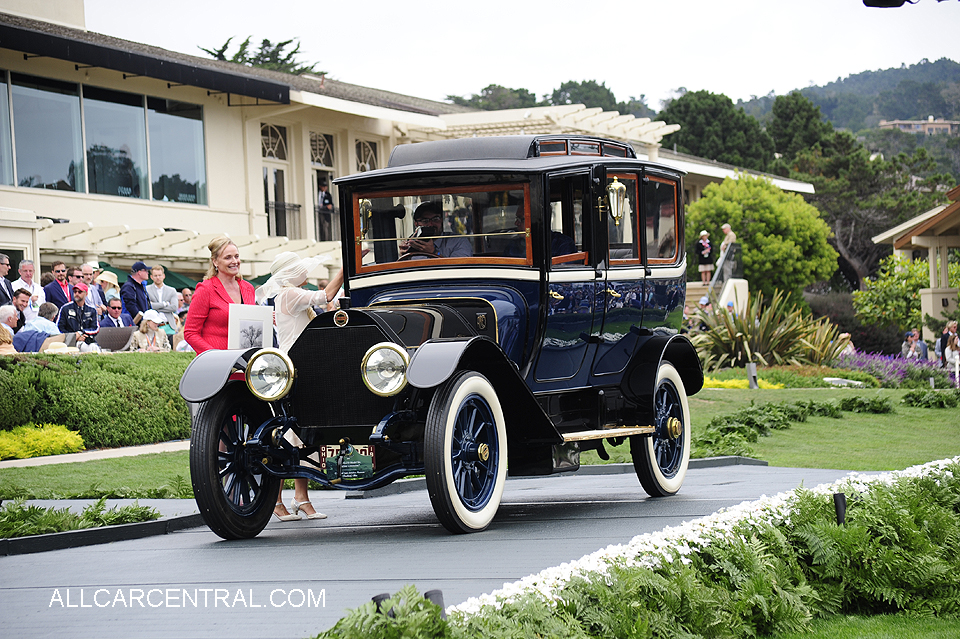
ALCO Model Six Berline Limousine 1913

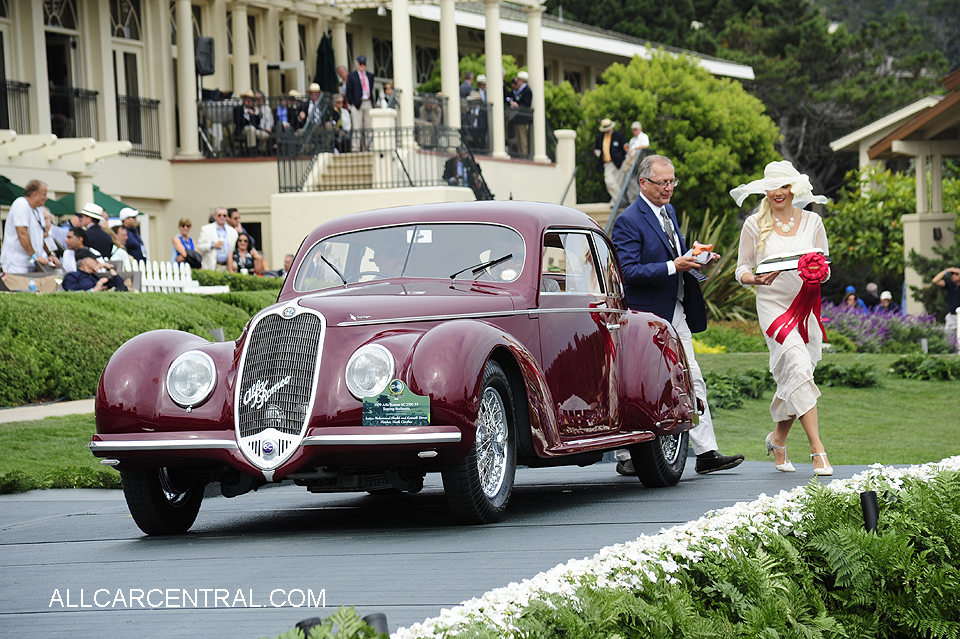
Alfa Romeo 6C 2500
SS Touring Berlinetta sn-915033 1936
This famous Alfa Romeo 6C 2500 SS (chassis 915033), known as the
“Mussolini Mistress,” is believed to be the car Mussolini gave to his
mistress Clara Petacci and the car in which the pair later tried escape
from Italy in 1945. The distinctive body by Touring of Milan includes
unusual flashes cut into the rear wheel spats. The car retains its
original engine with Super Sport–specification triple carburetors
believed to have been included when built. When the pair were
captured on their escape to Switzerland, the car was confiscated.
It was eventually acquired by an American Army Air Corps officer,
Major Charles Pettit, who shipped it to his farm in New York State in
1949, where it was left to deteriorate in his barn. The Alfa was given a
new lease on life in 1970 when it was purchased by Leslie and Leigh
Keno’s father Ronald for $300. He restored the car before selling it
to collector Donnie Morton of Connecticut, who passed it to the
Imperial Palace Auto Collection, where it remained two decades
before being sold to another long-term owner in 1999.
Source: Pebble Beach Concours media release

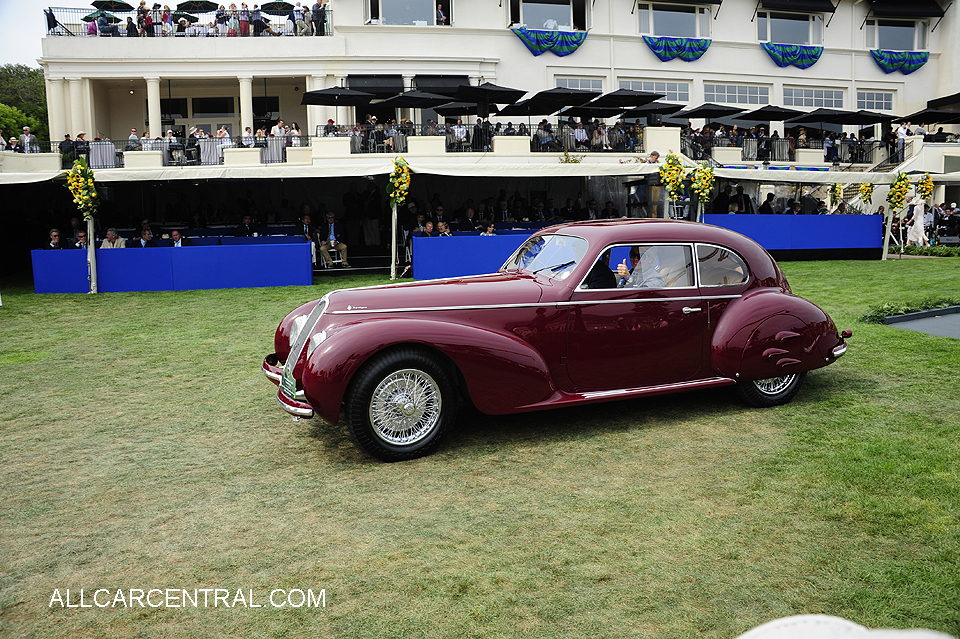
Alfa Romeo 6C 2500 SS Touring Berlinetta sn-915033 1936

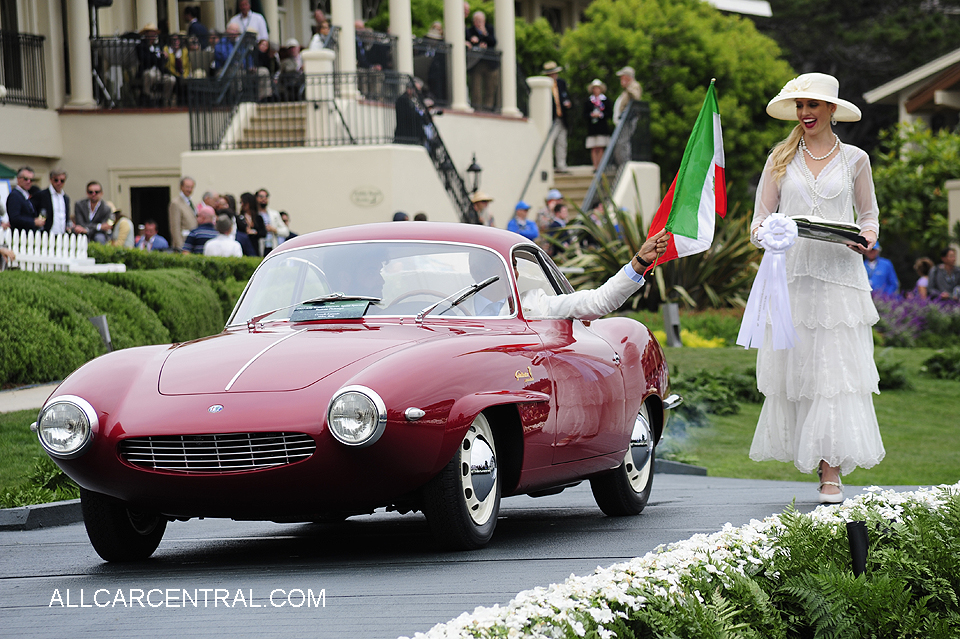
Alfa Romeo Giulietta Sprint Speciale
Bertone Prototipo sn-00001 1957
This is the prototype Alfa Romeo Giulietta Sprint Speciale (chassis
00001) that was shown at the Turin Motor Show in 1957. It was
designed by Franco Scaglione and built in aluminum by the same
team at Bertone that was responsible for the three Alfa Romeo BAT
(Berlinetta Aerodinamica Tecnica) prototypes between 1953 and
1955. Alfa Romeo planned the SS as an exclusive version of the
Alfa Romeo Giulietta Sprint, and this prototype was designed to be
different in many ways. Its most notable features are the lack of the
traditional Alfa grill that would appear on the production cars and
its very pronounced front and rear overhangs. A second aluminum
prototype, with slightly more conservative bodywork, was exhibited
in Geneva in 1958; the second prototype formed the basis for the
Giulietta SS that was finally launched in 1959. About 1,350 Giulietta
Sprint Speciales, with the Alfa grill fitted low at the front, were
produced before the model was replaced in 1963.
Source: Pebble Beach Concours media release.

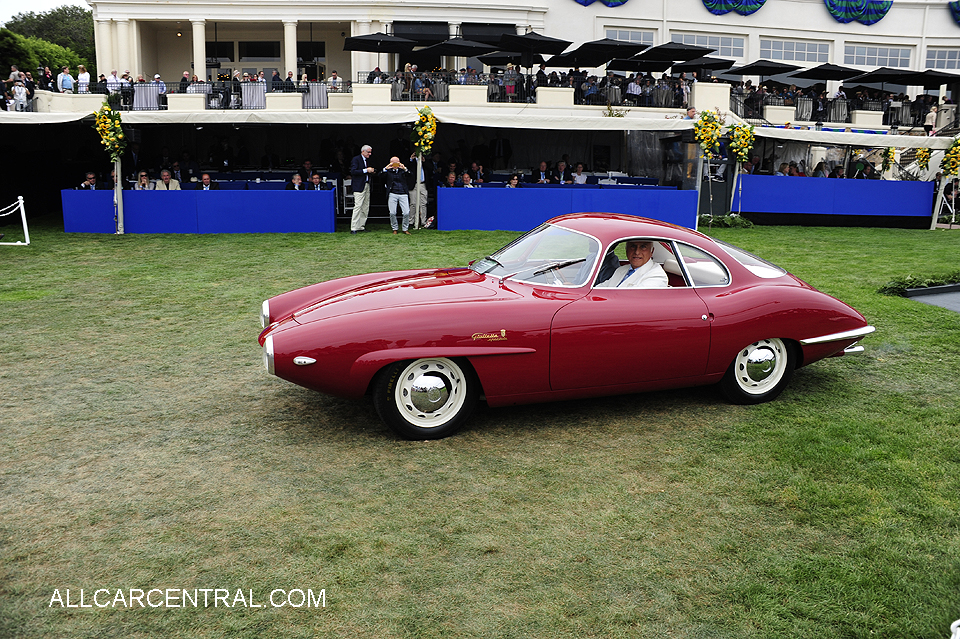
Alfa Romeo Giulietta Sprint Speciale Bertone Prototipo sn-00001 1957

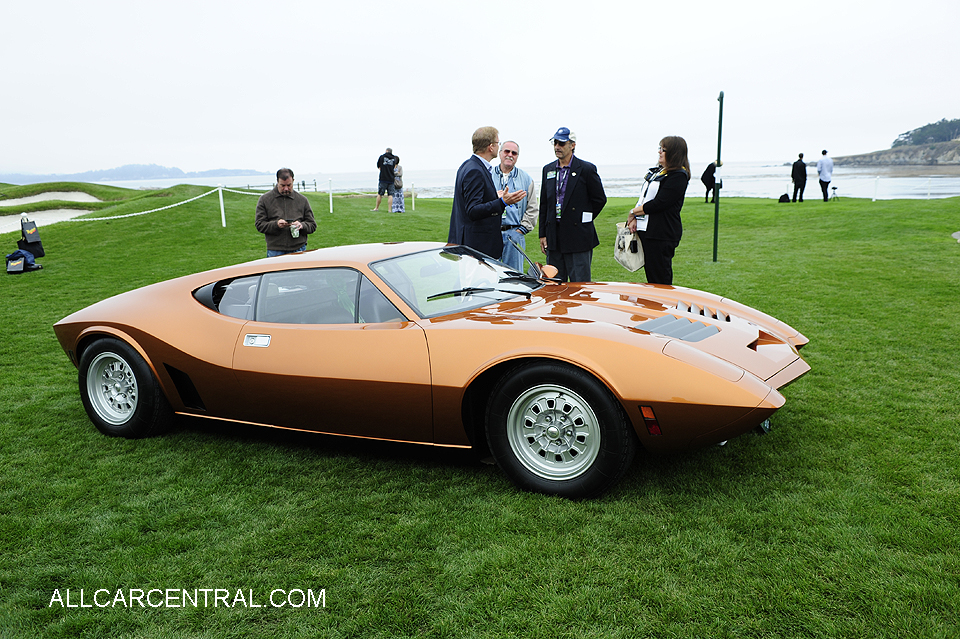
American Motors
AMX-3 Auto Costruzioni S.D. Coupe 1969
R12 PB 2016
Before the final AMX 3 was built, two prototypes were tested by
AMC during 1968. AMC’s in-house designer Richard Teague worked
with Giotto Bizzarrini to develop the image-defining model into a
road-going 160 mph sports car. All three prototypes were built by
Salvatore Diomante in Turin, and BMW and Polytecnico di Torino
performed rigidity testing with high-speed runs at Monza. In March
1970 the car was launched and the reviews were very favorable, but
a few months later the program came to a halt. This car was finished
in November 1969 and is the actual car tested by Bizzarrini at the
Monza Autodrome. It has a number of unique modifications, which
provided the necessary cooling for the powerful V8 engine; it has
extra air inlets for the radiator under the front lights, on the front
hood and two scoops behind the rear windows.
Source: Pebble Beach Concours media release.

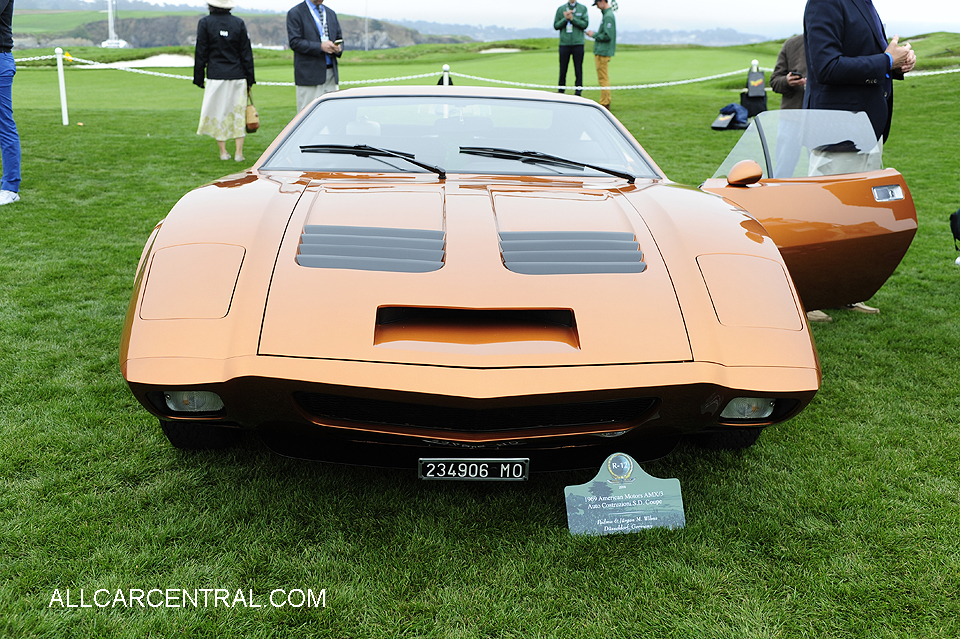
American Motors AMX-3 Auto Costruzioni S.D. Coupe 1969 R12 PB 2016

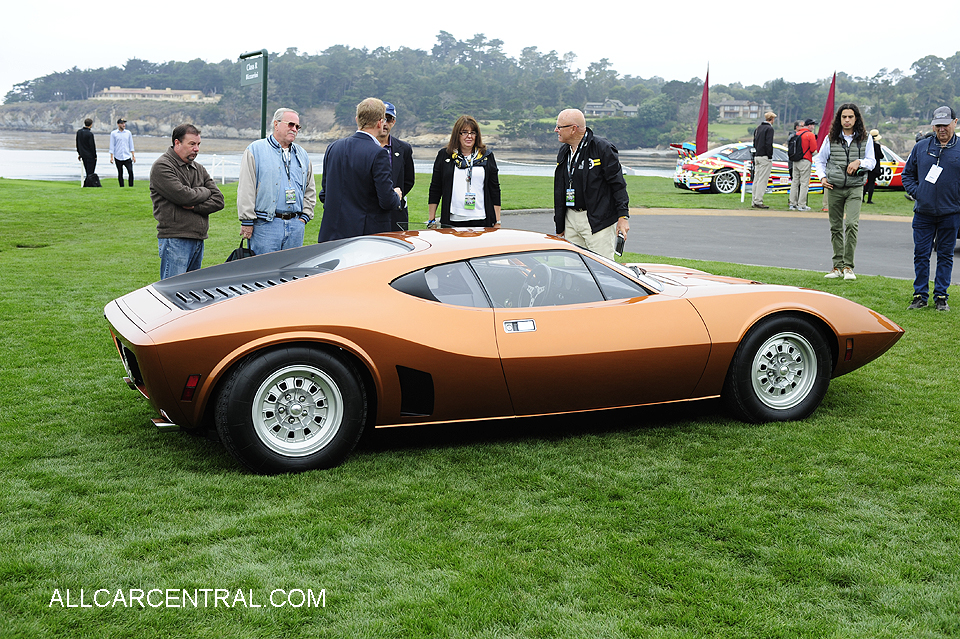
American Motors AMX-3 Auto Costruzioni S.D. Coupe 1969 R12 PB 2016

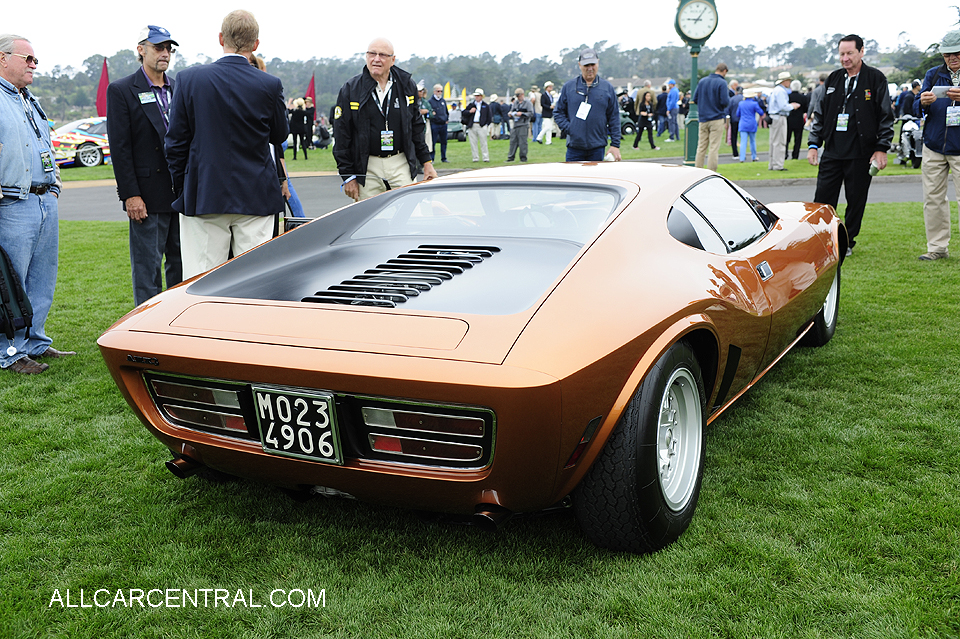
American Motors AMX-3 Auto Costruzioni S.D. Coupe 1969 R12 PB 2016

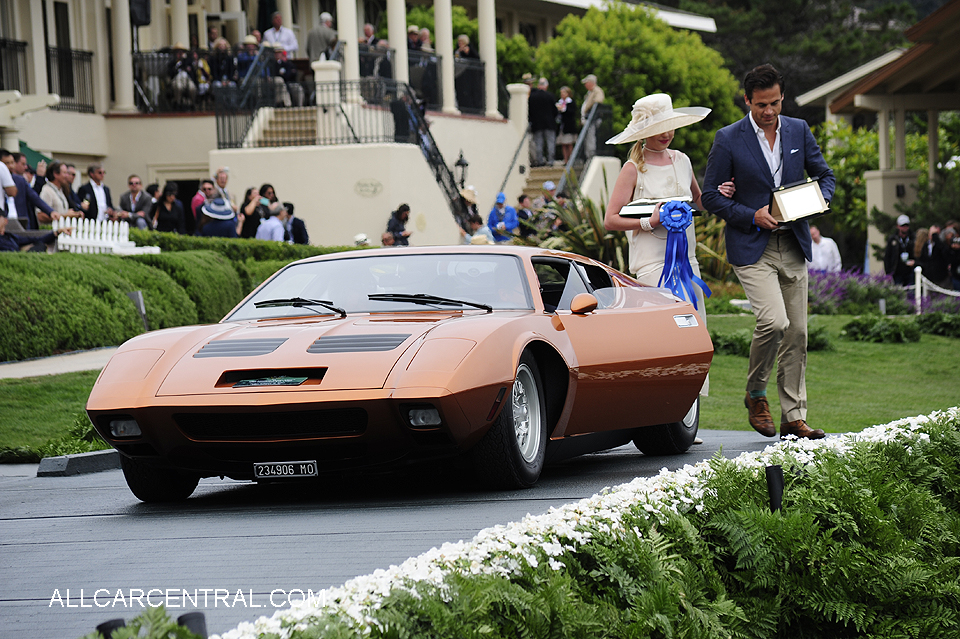
American Motors AMX-3 Auto Costruzioni S.D. Coupe 1969

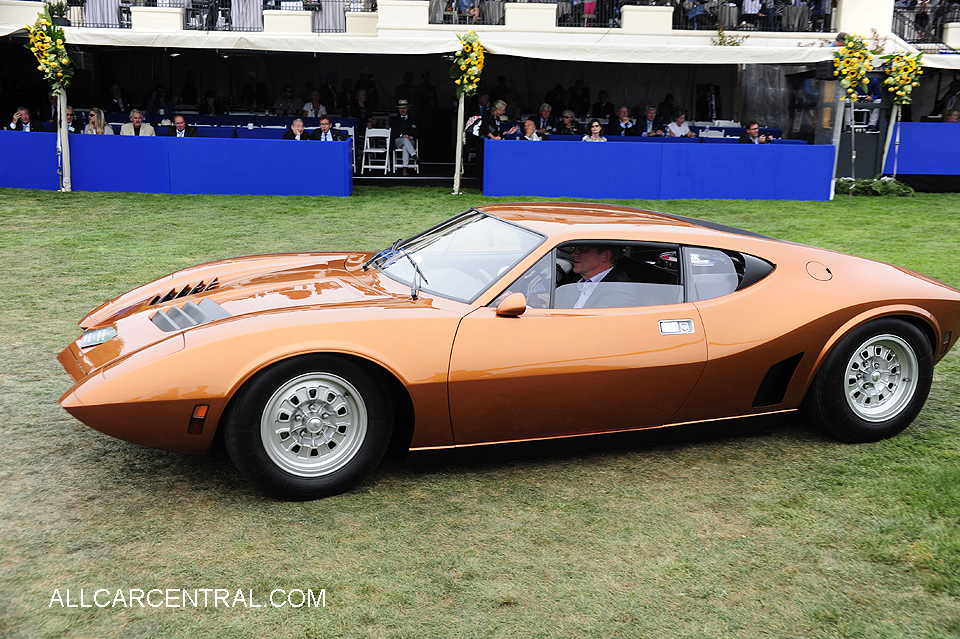
American Motors AMX-3 Auto Costruzioni S.D. Coupe 1969

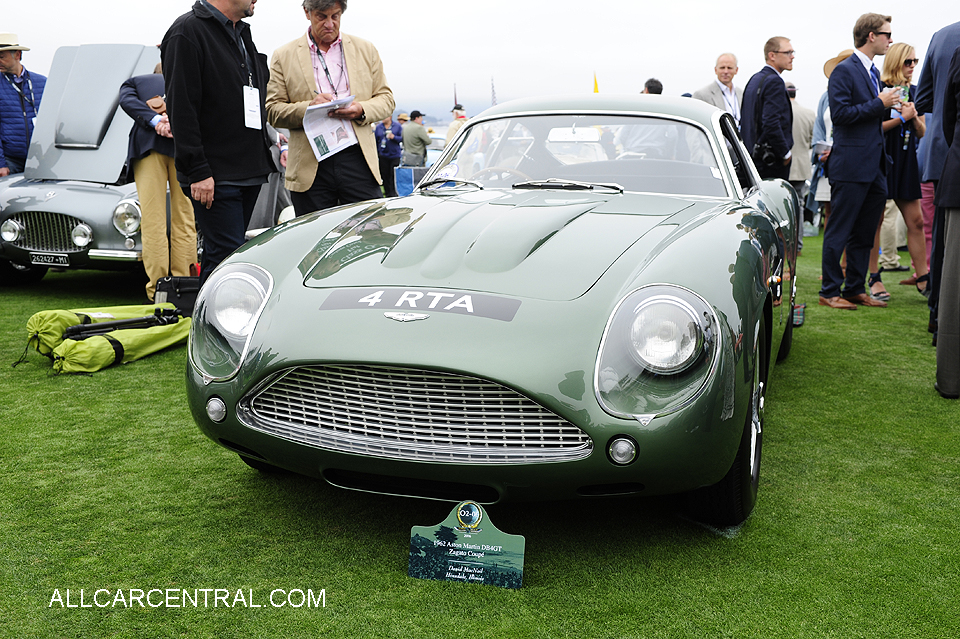
Aston Martin DB4GT Zagato
Coupe sn-DB4GT-0186-R 1962
Aston Martin unveiled the first Zagato-bodied DB4GT at the 1960
London Motor Show, and over a period of two years 19 examples
were built by Zagato in Italy. Built to compete in the World Sports Car
Championship, several of these Zagato-bodied coupés competed
in international races between 1960 and 1962. This car (chassis
DB4GT/0186/R), the 14th to be built, was the only one delivered to
Australia, where it had a short but successful racing career in 1962.
Its first owner, Laurie O’Neill, shared the driving there with Doug
Whiteford and Ian Georghegan, and the trio scored many class and
overall wins down under. After O’Neill sold the car, it remained in
Australia for the next 30 years but was rarely seen. The current owner
recently acquired the car from Peter Read, who restored it in 2002.
Source: Pebble Beach Concours media release.

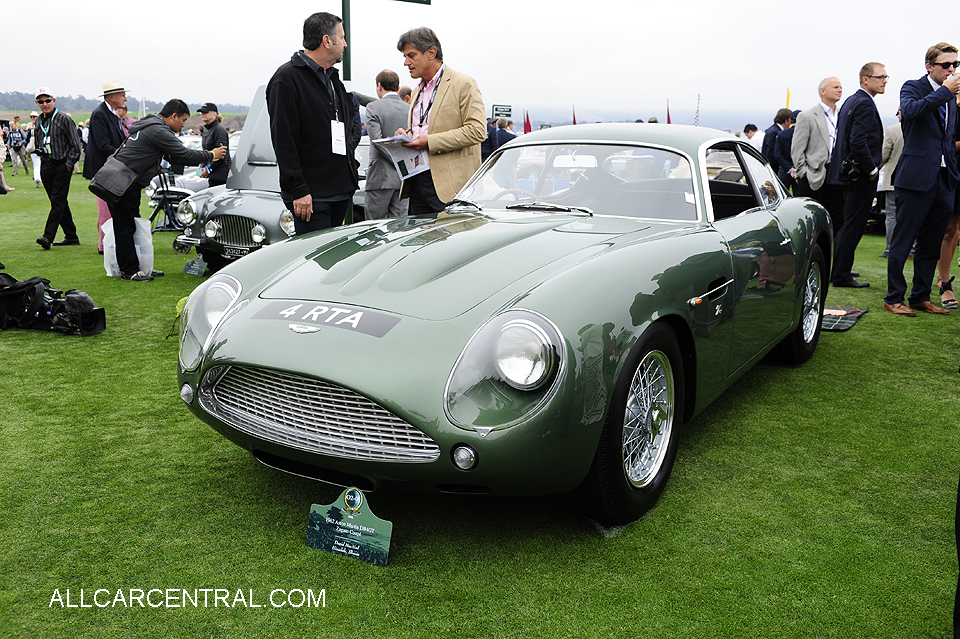
Aston Martin DB4GT Zagato Coupe sn-DB4GT-0186-R 1962

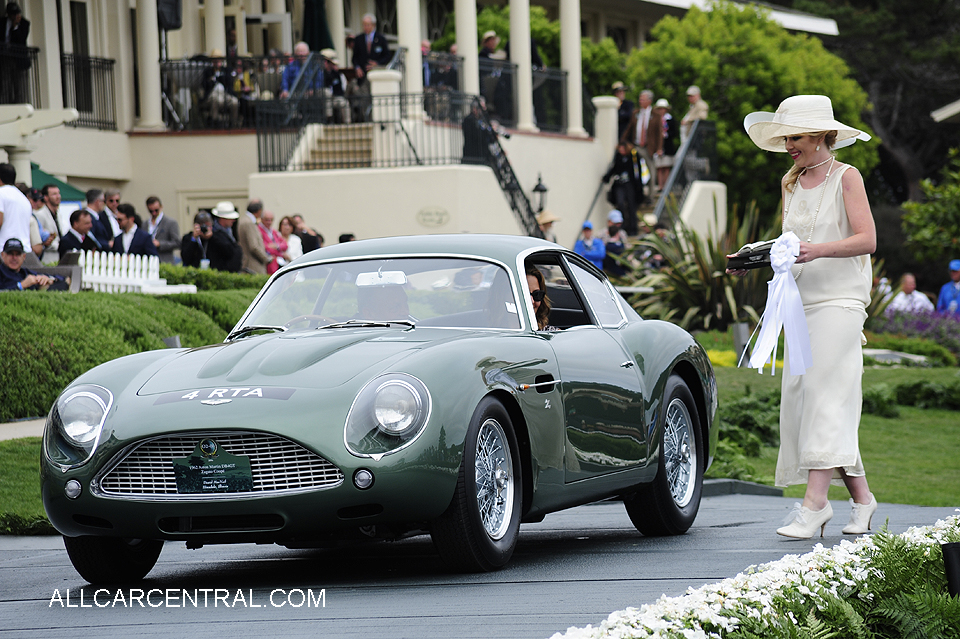
Aston Martin DB4GT Zagato Coupe sn-DB4GT-0186-R 1962

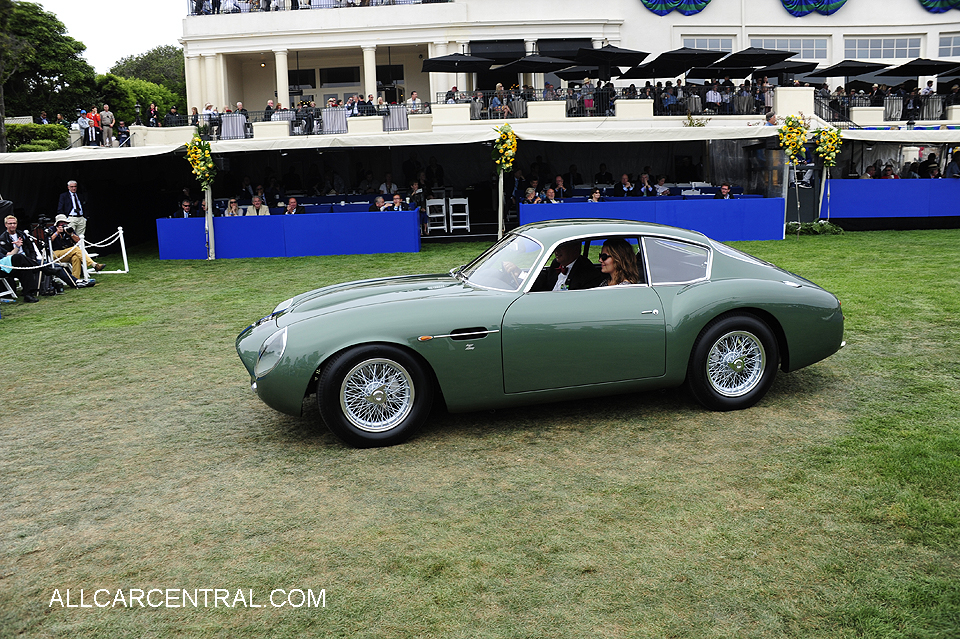
Aston Martin DB4GT Zagato Coupe sn-DB4GT-0186-R 1962

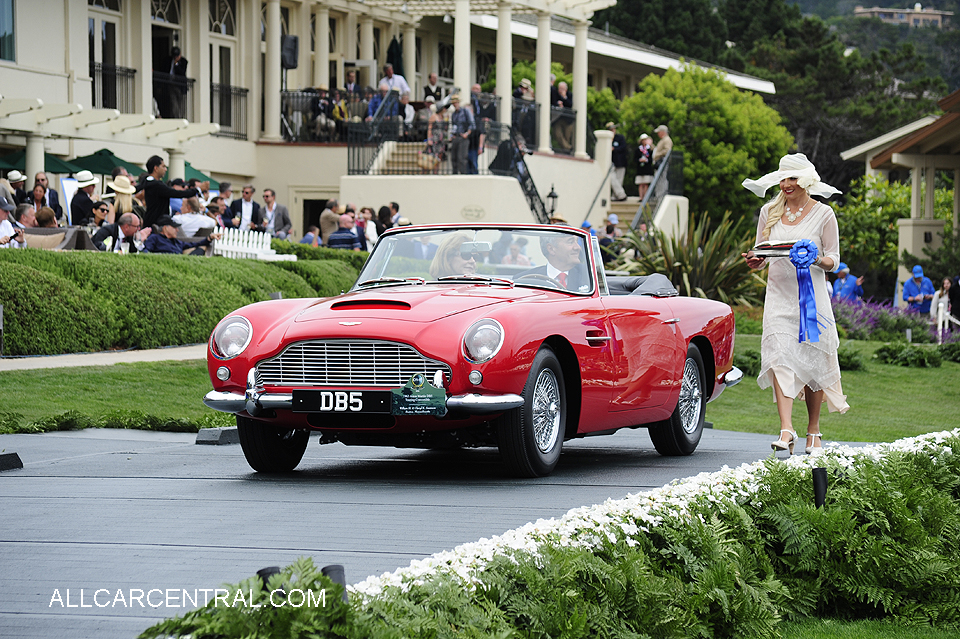
Aston Martin
DB5 Touring Convertible sn-DB5C-1253-L
1963
This Aston Martin DB5 is one of 19 left-hand drive examples
built from a total of 123 convertibles. The convertible (chassis
DB5C/1253/L) was shown at the New York and Los Angeles Auto
Shows, and differs slightly from the production models: inside it has
several fittings borrowed from its cousin, the Lagonda Rapide, and
under the bonnet the aluminum cam covers are polished instead of
painted and the carburetors, intake manifolds and various aluminum
fittings are polished and chromed instead of nickel plated. This
DB5C show car, complete with chromed Borrani wire wheels, was
purchased immediately after the Los Angeles Show by retired US
Admiral Robert Miller, who kept the Aston Martin at his home in
Santa Barbara, California, until he died in 1993. The car was bought
by its current owner in 2013 with just 34,916 miles on the clock.
Source: Pebble Beach Concours media release.

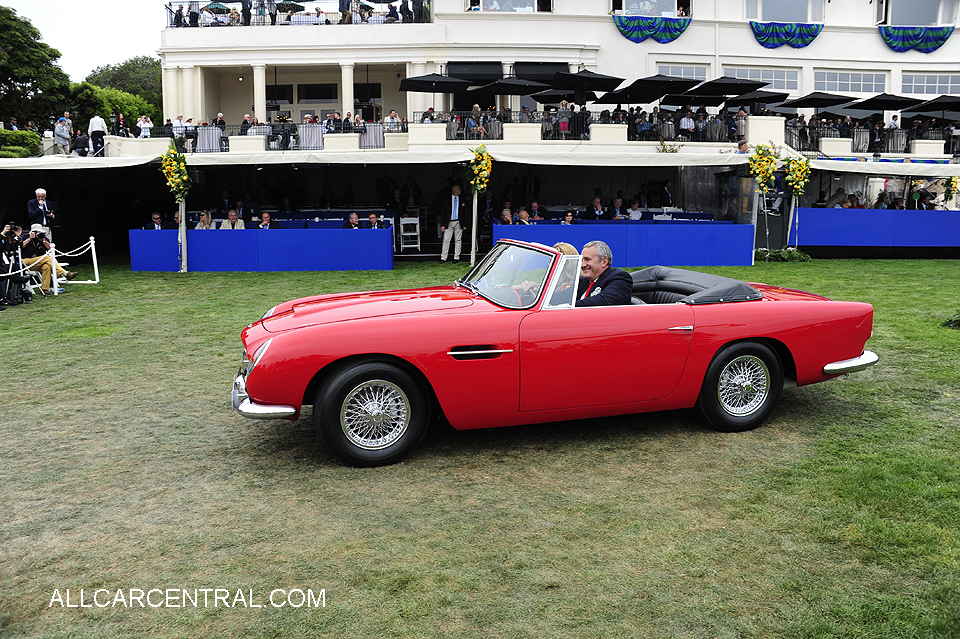
Aston Martin DB5 Touring Convertible sn-DB5C-1253-L 1963

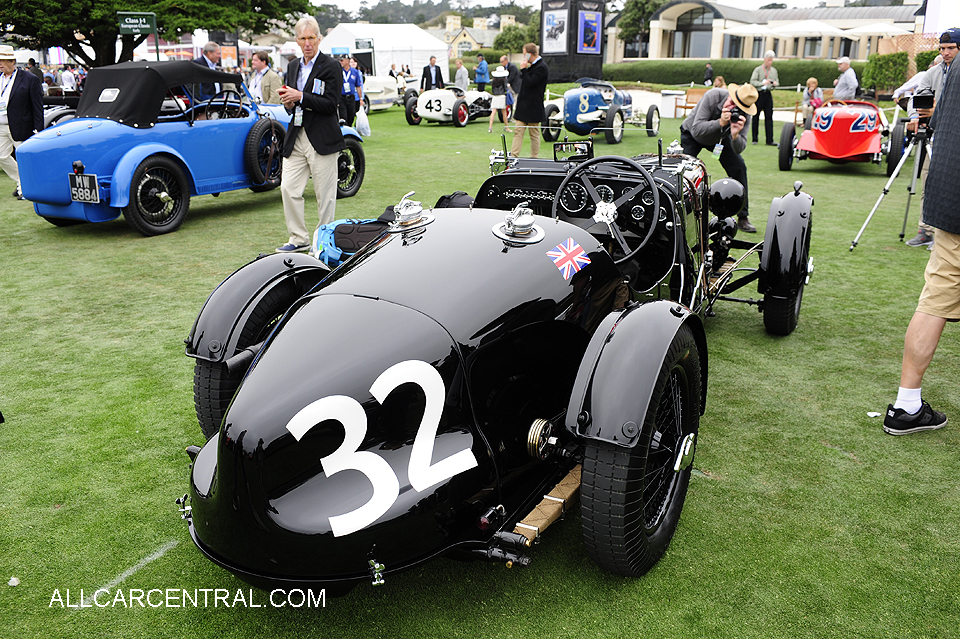
Aston Martin Ulster Sport sn-K4-509-U
1935
The Aston Martin Ulster, one of the most successful British-built
prewar race cars, was based on the 1500 cc–engined Aston Martin
Mark II. After Aston’s success at the 1934 Tourist Trophy, 21 Aston
Martin Ulsters were built for sale to privateers. This particular Ulster
(chassis K4 509 U) was built in 1934 for amateur driver Peter Donkin,
who finished 11th overall in his first race at Le Mans with co-driver
Lord Malcolm Douglas-Hamilton. Seven Astons entered Le Mans
that year, including three team cars and four privateers—and all
but one finished. This Ulster went on to race successfully at the
Donington 12 Hour race in 1937 and the International Ulster Tourist
Trophy Race in 1946. It has been raced virtually all of its life and has
now been fully restored.
Source: Pebble Beach Concours media release.

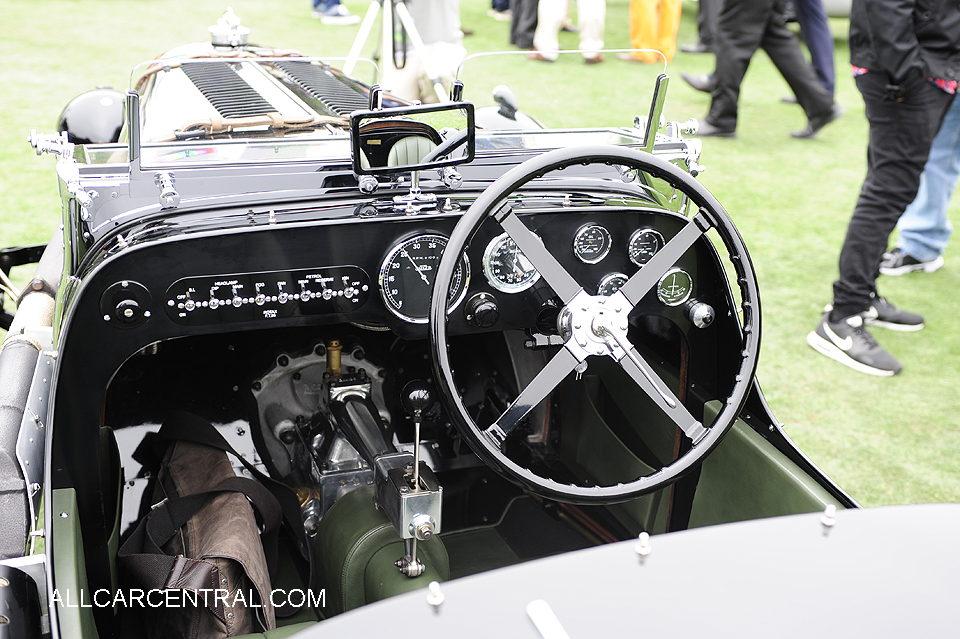
Aston Martin Ulster Sport sn-K4-509-U 1935

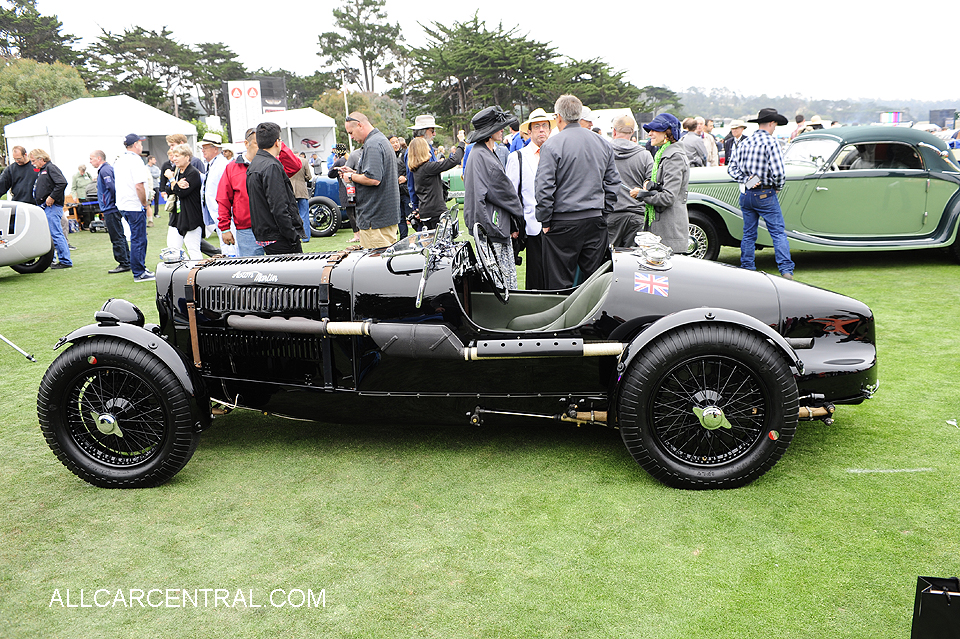
Aston Martin Ulster Sport sn-K4-509-U 1935

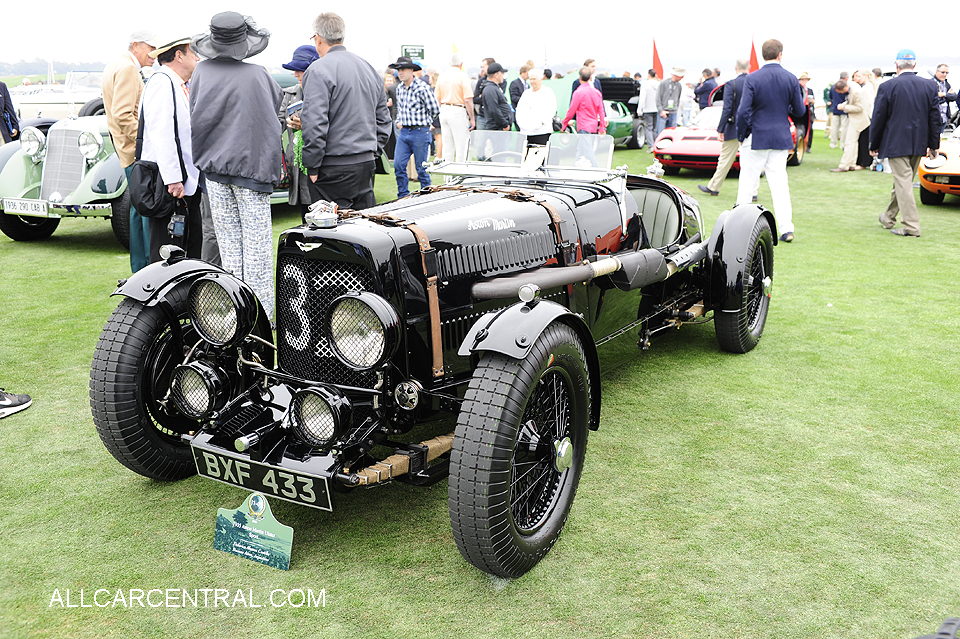
Aston Martin Ulster Sport sn-K4-509-U 1935

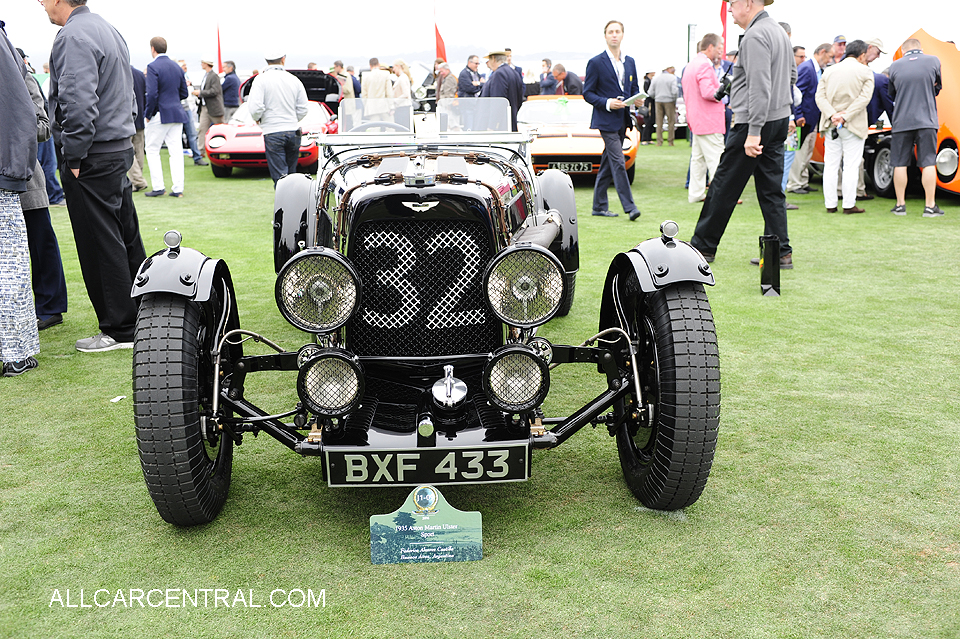
Aston Martin Ulster Sport sn-K4-509-U 1935

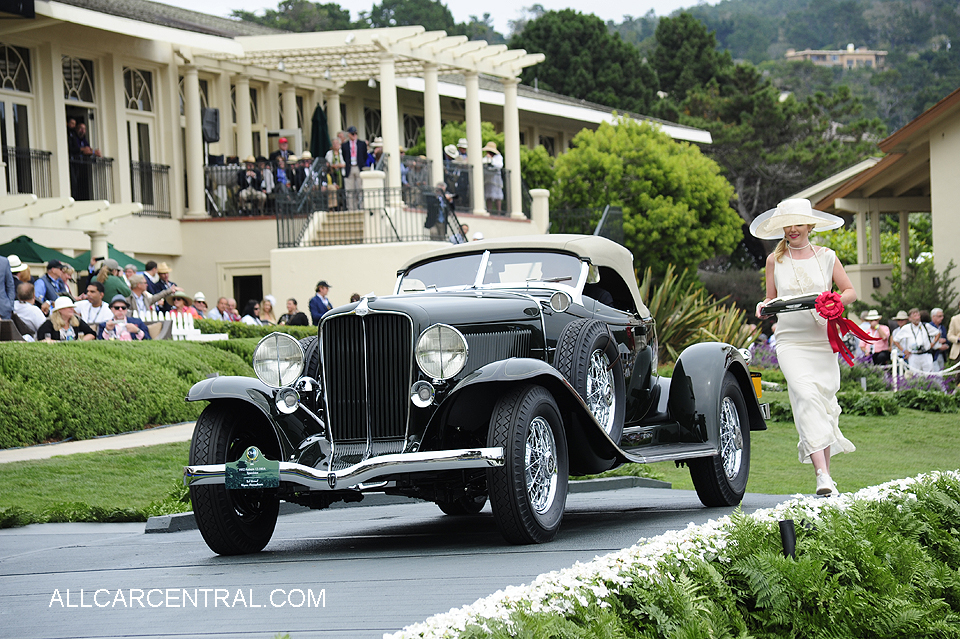
Auburn 12-160A Speedster 1932
Alan Leamy designed the Auburn speedster at the young age of 28,
and George Kublin, Auburn’s chief engineer, designed its 160 bhp
Lycoming V12 engine. The car was very advanced for its day, yet it
was quite reasonably priced at $1,425. It featured Auburn’s newly
developed Columbia 2-speed differential, which effectively gave the
car six forward speeds as well as cockpit-adjustable shock absorbers
and a Startix system that automatically restarted the engine if it
stalled. In 1932 Auburn built 37 speedsters, and this is one of just
six known to survive. This car’s history can be traced back to the late
1950s, but it has recently been restored and is making its first pubic
appearance in years. It is a wonderful example of Classic Era speed
and glamour.
Source: Pebble Beach Concours media release.

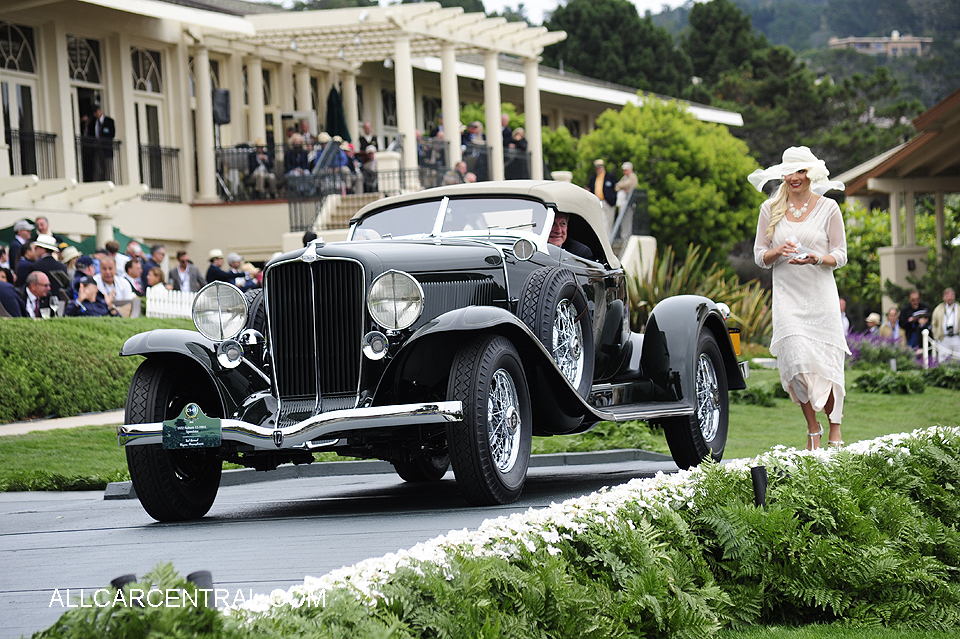
Auburn 12-160A Speedster 1932

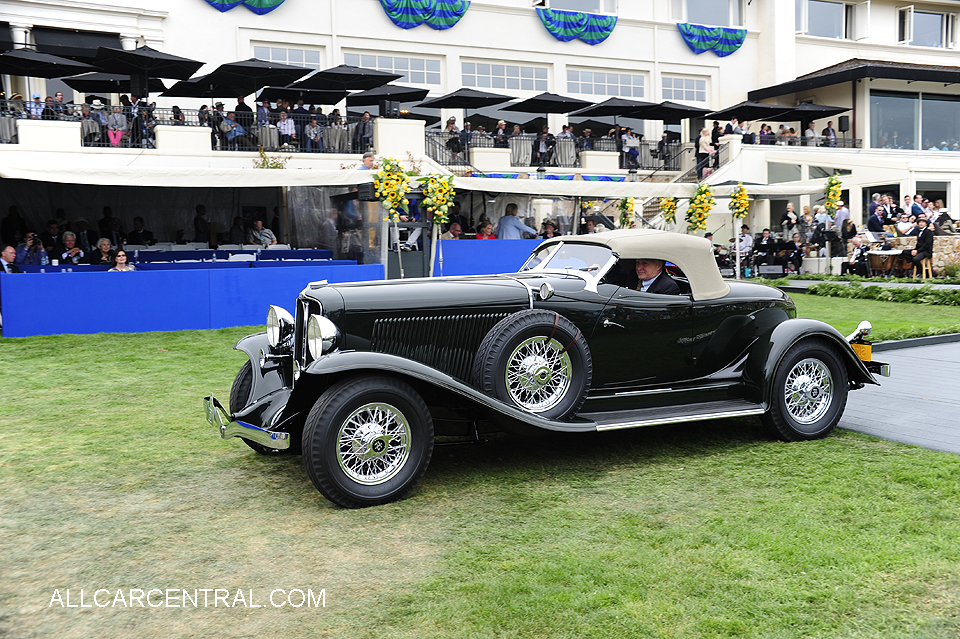
Auburn 12-160A Speedster 1932
All Cars • • Racing • • VINTAGE • • Shows • • Gallerys • • Contact
